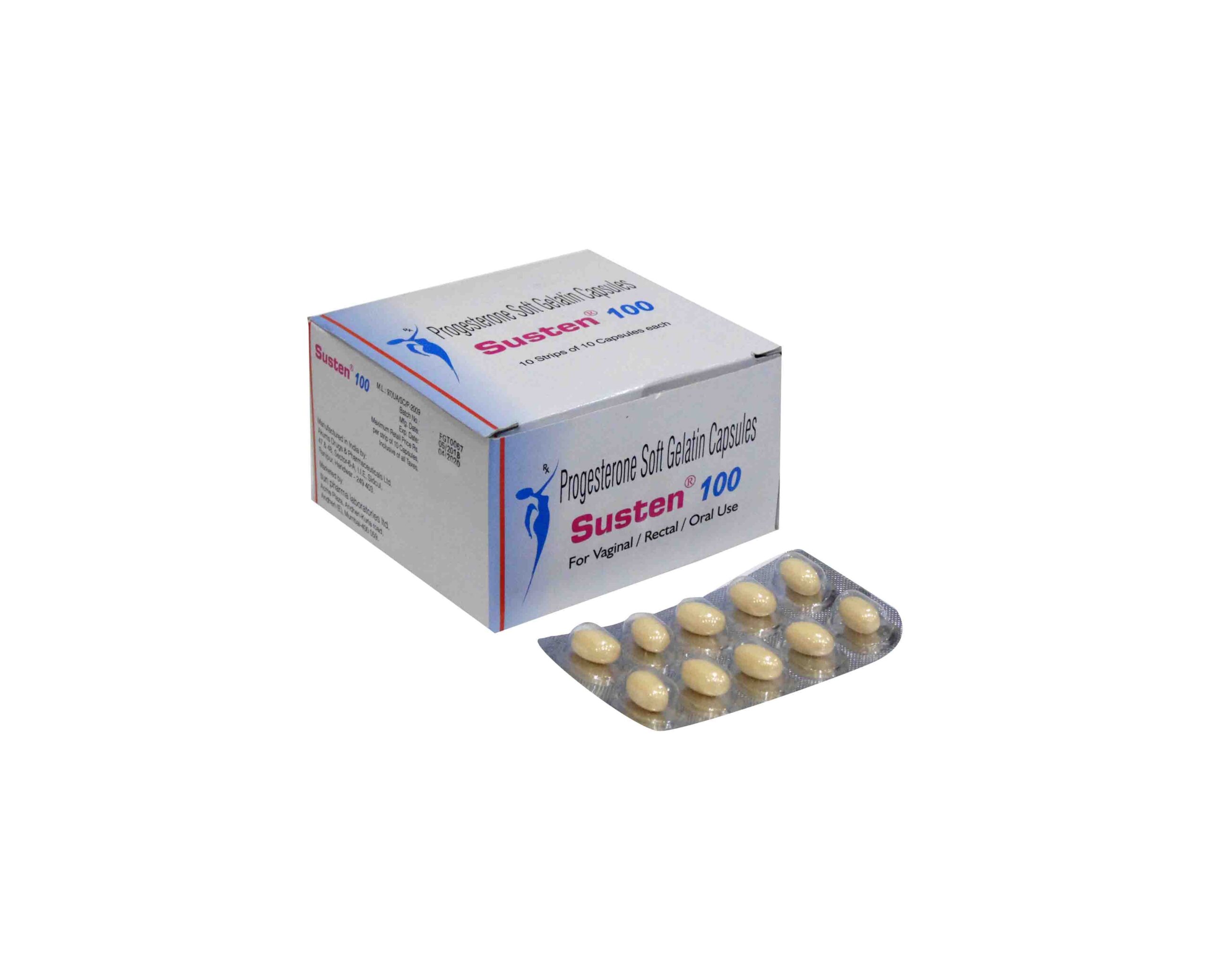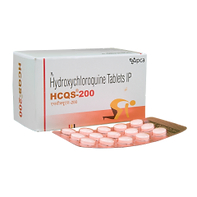SUSTEN (Progesterone)
$90.00 – $250.00
| Generic For | Prometrium |
|---|---|
| Generic Name | Progesterone |
| Manufacturer | Sun Pharma, India |
Progesterone capsules are medications that contain the hormone progesterone. Progesterone is a naturally occurring hormone that plays a crucial role in regulating the menstrual cycle and maintaining pregnancy. Progesterone capsules are used to treat various gynecological conditions such as irregular periods, infertility, and premenstrual syndrome (PMS). They are also used as a part of hormone replacement therapy (HRT) in menopausal women.
Progesterone capsules are available in different strengths and formulations, including micronized progesterone, which is believed to be more easily absorbed and utilized by the body. The capsules are typically taken orally, usually at bedtime, to minimize side effects such as drowsiness.
Common side effects of progesterone capsules include drowsiness, dizziness, breast tenderness, headache, and changes in mood. In some cases, progesterone capsules may cause more severe side effects, such as allergic reactions, chest pain, or difficulty breathing. Patients should consult with their healthcare provider if they experience any of these side effects.
Progesterone capsules may interact with other medications, so it is essential to inform your healthcare provider about all the medications you are taking, including over-the-counter drugs, vitamins, and herbal supplements.
It is crucial to follow the dosing instructions provided by your healthcare provider and not to exceed the recommended dosage. Progesterone capsules should be stored in a cool, dry place, away from direct sunlight and out of reach of children. Always consult with your healthcare provider before starting or stopping any medication, including progesterone capsules.
Progesterone capsules are used to treat a variety of gynecological conditions, including irregular periods, infertility, and premenstrual syndrome (PMS). They are also used as part of hormone replacement therapy (HRT) in menopausal women.
Progesterone capsules are available in different strengths and formulations, including micronized progesterone, which is believed to be more easily absorbed and utilized by the body. The capsules are typically taken orally, usually at bedtime, to minimize side effects such as drowsiness.
Common side effects of progesterone capsules include drowsiness, dizziness, breast tenderness, headache, and changes in mood. In some cases, progesterone capsules may cause more severe side effects, such as allergic reactions, chest pain, or difficulty breathing. Patients should consult with their healthcare provider if they experience any of these side effects.
Progesterone capsules may interact with other medications, so it is essential to inform your healthcare provider about all the medications you are taking, including over-the-counter drugs, vitamins, and herbal supplements.
It is crucial to follow the dosing instructions provided by your healthcare provider and not to exceed the recommended dosage. Progesterone capsules should be stored in a cool, dry place, away from direct sunlight, and out of reach of children. Always consult with your healthcare provider before starting or stopping any medication, including progesterone capsules.
Unique details about progesterone capsules include:
- Micronized progesterone capsules are believed to be more easily absorbed and utilized by the body than regular progesterone capsules. This formulation is often prescribed for women with endometriosis or infertility.
- Progesterone capsules are sometimes used in conjunction with other fertility treatments, such as in vitro fertilization (IVF), to help prepare the uterus for implantation.
- Progesterone capsules may help reduce the risk of endometrial cancer in postmenopausal women who are taking estrogen therapy.
- Some studies suggest that progesterone capsules may help alleviate symptoms of depression and anxiety in menopausal women.
- Progesterone capsules are available in a variety of brands and formulations, so it is essential to discuss your options with your healthcare provider to find the best option for your needs.
Always consult with your healthcare provider before starting or stopping any medication, including progesterone capsules.
SIDE EFFECTS:
The most common side effects of progesterone capsules include drowsiness, dizziness, breast tenderness, mood changes, and changes in appetite. These side effects are usually mild and temporary. However, if they persist or worsen, it is recommended to consult a healthcare professional.
Less common side effects may include headache, nausea, abdominal pain, and vaginal discharge. In some cases, progesterone capsules may also cause allergic reactions or worsen existing medical conditions. It is essential to inform your healthcare provider about your medical history and any medications you are currently taking before starting progesterone therapy.
It is also important to note that the side effects mentioned above are general and may vary from person to person. Always follow your healthcare provider’s instructions when taking progesterone capsules to ensure the best possible outcome.
The use of progesterone capsules can have positive effects on various gynecological conditions and symptoms. Some of these positive effects include:
- Regulation of menstrual cycle: Progesterone capsules can help regulate the menstrual cycle in women with irregular periods, which can lead to more predictable and consistent periods.
- Improvement in fertility: Progesterone capsules are often prescribed to women who have difficulty conceiving, as they can help prepare the uterus for the implantation of a fertilized egg and maintain a healthy pregnancy.
- Alleviation of PMS symptoms: Progesterone capsules can help alleviate symptoms associated with premenstrual syndrome (PMS), such as mood swings, bloating, and breast tenderness.
- Reduction in hot flashes and other menopausal symptoms: Progesterone capsules can be part of hormone replacement therapy (HRT) for menopausal women, helping to reduce hot flashes, night sweats, and other menopausal symptoms.
- Prevention of endometrial hyperplasia: Progesterone capsules can help prevent the thickening of the uterine lining (endometrial hyperplasia) in women with estrogen-dominant conditions, such as polycystic ovary syndrome (PCOS).
It is essential to note that the positive effects of progesterone capsules may vary from person to person, and it is crucial to consult with your healthcare provider to determine if progesterone therapy is the right choice for your specific condition. Always follow your healthcare provider’s instructions when taking progesterone capsules to ensure the best possible outcome.
| STRENGTH | 100 MG, 200 MG |
|---|---|
| PACK SIZE | 70 PILLS, 140 PILLS, 210 PILLS |
Related products
Uncategorized
Uncategorized
Uncategorized
Uncategorized
Uncategorized
Uncategorized
Uncategorized
Uncategorized













